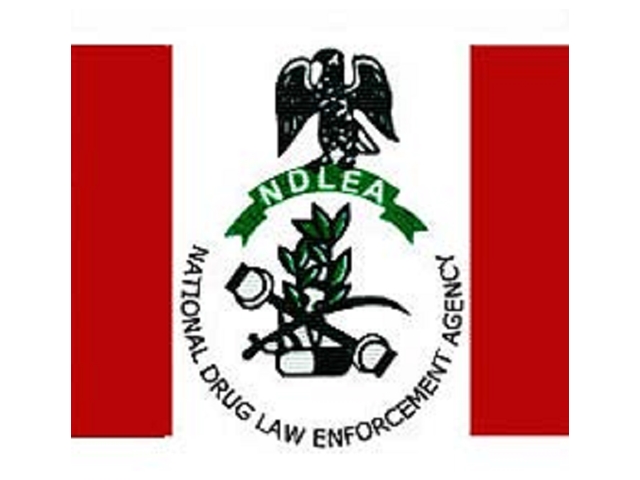Implement Drug Control Master Plan
The National Drug Control Master Plan (2021-2025) is a document containing strategic approaches to tackling the endemic drug abuse ravaging youths from North to South of this country. Abuse of narcotic drugs is rampant at schools, markets, mechanic workshops, clubs, and even families, in spite of the fact that its consequences in mental health problems […]

The National Drugs Law Enforcement Agency (NDLEA)
The National Drug Control Master Plan (2021-2025) is a document containing strategic approaches to tackling the endemic drug abuse ravaging youths from North to South of this country. Abuse of narcotic drugs is rampant at schools, markets, mechanic workshops, clubs, and even families, in spite of the fact that its consequences in mental health problems are not lost to those addicted to narcotic drugs. Those who abuse marijuana are at risk of mental disorder, impairment in memory, learning and problem solving; those who use cocaine are at risk of heart attack, stroke and even suicide; those addicted to inhalants and ecstasy drugs are at risk of liver failure, heart failure, damage to lung and kidneys; those addicted to opioids risk respiratory distress or death from overdose, and those who take electronic cigarette are at risk of nicotine dependence. Also, drug abuse is associated with high-risk sexual activity, unsafe sex and unplanned pregnancy.
These mental health and social problems are enormous in Nigeria. The Drug Abuse in Nigeria Survey 2018, published in the Master Plan, reveals the alarming rate narcotic drugs are abused in Nigeria. The report says 14.3 million persons, between the ages of 15 and 64, reported drug use, put at 14.4 per cent of the population. The figure is far higher than the global prevalence average rate of 5.6 per cent, as per the World Drug Report 2019. The report says “The most commonly used drug in Nigeria is cannabis (with 10.6 million people reporting use), followed by opioids (4.6 million), mainly through non-medical use of prescription opioids and cough syrups (2.4 million).” The data reveals further that one in every four people who use drugs in Nigeria is a woman, with the remark that “Drug use among women is highly stigmatised and remains largely hidden and unreported.” Women, according to the report, constituted about six per cent of those who entered treatment for mental health illness as a result of drug and substance abuse.
The Master Plan, to be executed between 2021 and 2025, is anchored on four pillars, among them supply reduction, drug demand reduction, access to controlled medicines for medical purposes, governance and coordination. The strategies are meant to reinvigorate the activities of government agencies and various stakeholders in creating disruptions in drug trafficking, making drug trade unprofitable, reducing the use of drugs through prevention and sensitisation, reducing dependence on drugs through treatments and ensuring strict control of access to pharmaceutical medicine in public and private health facilities. The 48-page document has clearly outlined what should be done by various stakeholders, stipulating key outcomes, priorities and expected impacts. It is not clear if the master plan is being implemented at the moment, as it is already one year behind its take-off point, meaning that some of the targeted outcomes may have been lost due to non-implementation in 2021.
As a newspaper that has investigated and reported the severity of drug abuse in the country, we put our weight behind this strategic master plan and would encourage the National Drug Law Enforcement Agency (NDLEA), Ministry of Health, the United Nations Office on Drugs and Crimes (UNODC), the Nigeria Police and all security agencies with roles to play in its implementation to actively play the ball in their court. But this challenge should not be left to government agencies alone, as every family, religious leader and institution, school and civil society organisation must put all hands on deck to tackle the menace of drug abuse among the youth and adults. As it is apparent that drug abuse is a consequence of mental health, parents must closely observe their youth who may suffer from depression, isolation, anxiety, distress, post-traumatic disorder and the like. We must equip the behavioural health sections of our hospitals to be able to cater for persons who manifest such mental health problems, through counselling and administration of remedial drugs.
Furthermore, we call for a lot of publicity, in the form of television drama, talk shows, special programmes and mental health education in indigenous languages, with the objective of discouraging drug use. There must be frank discussions about this menace in the society. But most importantly, security agencies must effectively police Nigeria’s borders to prevent trafficking in drugs. Nigeria must work hand-in-hand with neighbouring countries to combat trafficking in drugs, as it is clear that drug abuse is destroying the future of the productive population in many parts of Nigeria. In this regard, operatives who compromise their duties by facilitating the trafficking of narcotic drugs into Nigeria must be severely punished. This drug control master plan must not fail, like many other such noble and strategic documented plans, never implemented.
